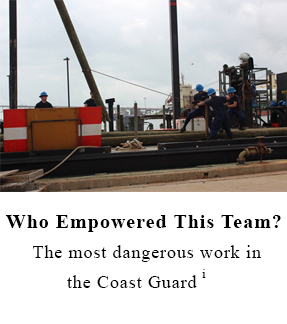If It Wasn’t for people . . . Leaders wouldn’t need people.
Wouldn’t need what? Wouldn’t need people; those people responsible for the task at hand; accomplishing the work; achieving mission success.
We’ve talked about we the “leaders’ ” attempts to do everything ourselves; maintaining tight control over every aspect of the work, inordinate numbers of reports, constant emails, and texts; that rarely provides the best results and in the worst case, you the “leader” may fail.
Choosing good people, particularly those who lead the teams in your organization, those teams responsible for achieving success, doing the work. That is a top responsibility for any commander, CEO, or senior church leaders. Without good people, nothing happens. But it takes more than good people.
The major responsibility for success in an organization lies with those Senior Vice Presidents, Vice Presidents, and Directors or in a military organization subordinate commanders down to the key non-commissioned officers and petty officers. With a church that responsibility lies with other pastors on the staff, other ministry leaders, and, probably the most important, key volunteers. So what is the secret to making these subordinate leaders successful? Empowerment! That is one important ingredient.
Empowerment? Just what is empowerment? Maybe it is giving a person the responsibility along with the authority, guidance, and resources to accomplish a particular task or mission AND along the way giving that person the opportunity to create something and grow. To become successful, so as to position that person for even greater responsibility in the future.
Before you the “leader” can empower a subordinate for a new task, there are some prerequisites. That person must be qualified or at least have the experience to lead others in accomplishing the task. You the “leader” must either provide necessary resources or advice on how to obtain the required resources, be it material, financial, or people. And you must provide at least some form of guidance, whether found in organizational policy or special instructions.
Empowerment also means that you the leader must let go. It is reasonable to receive periodic reports that show progress along the way. Are things on schedule (work without a schedule is not work at all), is the work within the budget, is support from other parts of the organization adequate, and are there resources beyond the organization that only you the “leader” can bring to bear on the situation? Things you the “leader” should know. But with upward reporting in lies an important question for you the “leader;” have you given your subordinate the necessary freedom to succeed? You can watch the dials and gauges, but try to keep your hands off the knobs and levers. That is the faith and trust you must have for your subordinate teams to succeed.
Experience has told me that most people want to achieve success; the best for the team and the organization and those for whom they are responsible. So why isn’t every team or organization just blooming with success? For the most part, it is because people haven’t been empowered, encouraged, and given the freedom to create and succeed. Yes, there may be personal considerations like work hours, where one works, benefits, and maybe salary, although salary is basically a retainer, not an enabler. Even in our younger generation, I remain convinced that people want to do well at their occupation, whether it be in business, in ministry, in the military, and yes, in the home.
A person’s work, I believe, has intrinsic value to God. Why would I say such a thing? Because in the beginning when the creation was as God intended, Adam and Eve, made in His image, were given the tasks of tending the garden. They were empowered over all other forms of life. Now we know that didn’t last, but nevertheless, the sense of succeeding in an occupation, at least to one who is a follower of Jesus, is important to God for in His Word He reminds us to, “Commit your works to the Lord, and your thoughts will be established.” (Prov. 16:3) And He empowers us to do those things; “For we are His workmanship, created in Christ Jesus for good works, which God prepared beforehand that we should walk in them.” (Eph. 2:10). This becomes the integration of ones faith and profession for His glory. He will empower you and you must empower those for whom you are responsible.
i A team of Coastguardsmen, led by a senior petty officer doing what many mariners take for granite, setting a piling for a new channel day marker—the most dangerous job in the Coast Guard.





